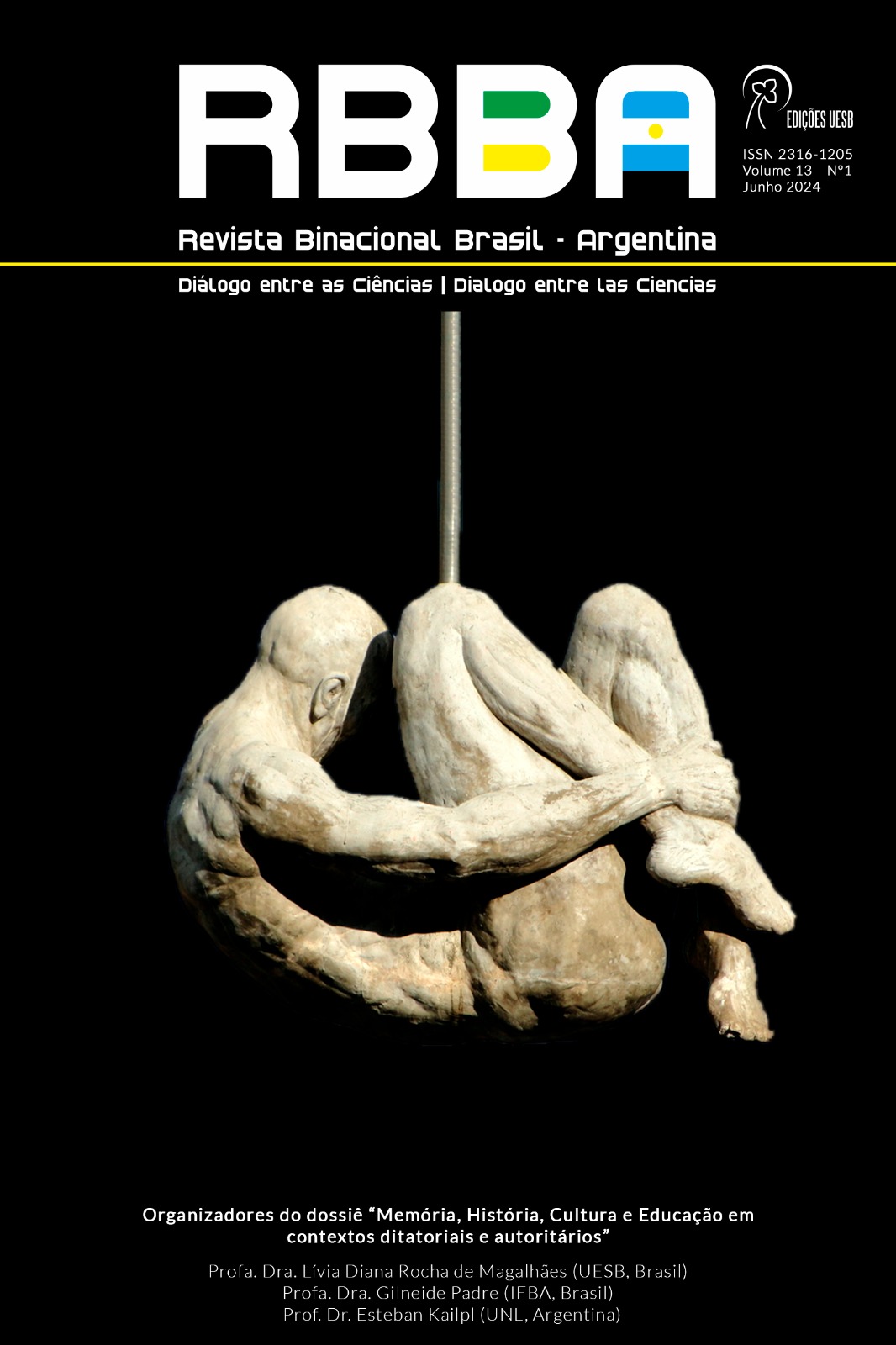1983 as a systemic boundary. Democracy as a contingency formula for the political system in Argentina
DOI:
https://doi.org/10.22481/rbba.v13i01.14745Keywords:
Democracy, Contingency, Political System, AutoritarismAbstract
It is not realistic to think that politics is a field able to generate definitive solutions in theoretical terms, and “final” responses as public and binding policies to any popular demand. Societies evolve, so do constitutional States governed by the rule of law. Democracy must be thought as a political form that has to deal with an inexhaustible source of demands. A formal democratic process has begun in 1983 in Argentina. This process contains elements that will put democracy in question or in crisis, but it is perhaps those same elements that give the democratic system greater legitimacy. In other words, what seems to control it is what keeps it alive deeply. The construction of democracy seems to be a contingency formula for a political system that never ceases to close in on itself. The political system cannot be the exact theoretical equivalent of the democratic form, because democracy itself becomes the key that reopens that system again and again. This fact allows to distance ourselves from authoritarian regimes despite the authoritarian deviations of some democratically elected governments.
Downloads
References
ABOY CARLÉS, G. Las dos fronteras de la democracia en Argentina. La reformulación de las identidades de Alfonsín a Menem. Rosario: Prometeo, 2001.
BUTLER, J.; LACLAU, E.; SISEK, S. Contingencia, hegemonía, universalidad. Diálogos contemporáneos en la izquierda. México DF: FCE, 2003.
BACHUR, J. P. Resignificación como categoría social: Protesta y procedimiento en la teoría social de Niklas Luhmann. En Estudios Sociológicos de El Colegio de México. 31 (93). 657-689.
CORSI, G., ESPOSITO, E., BARALDI, C. Glosario sobre la teoría Social de Niklas Luhmann. México. Universidad Iberoamericana, 1996.
HABERMAS, J. Teoría de la acción comunicativa, Tomo I, Racionalidad de la acción y racionalización social. Madrid. Taurus ed., 1999.
IGLESIAS, C. Pensar un mundo sin Dios: la sociología de Niklas Luhmann. Entre Ríos, Paraná. Eduner, 2005.
KAIPL, E.; RÍPOLO, F. La contingencia moral y política de la sociedad. Un análisis sistémico de la legislación de la interrupción voluntaria del embarazo. En Temas Y Debates, (39), 105–123. 2020.
NUN, J. La democracia y la modernización treinta años después. En Desarrollo Económico, v. 31, N°12. 375-393, 1991.
LESGART, C. Usos de la transición a la democracia. Ensayo, Ciencia y Política en la década del 80’. Rosario. Homo Sapiens, 2003.
LUHMANN, N. Teoría política en el Estado de Bienestar. Madrid. Alianza, 1993.
LUHMANN, N. Poder. Barcelona. Anthropos, 1996.
LUHMANN, N. Los derechos fundamentales como institución. Aportación a la sociología política. México D.F: Universidad Iberoamericana, 2010.
LUHMANN, N. Sociología del riesgo. Mexico. Universidad Iberoamericana, 1992.
LUHMANN, N. Sistemas sociales. Lineamientos para una teoría general. Barcelona, Anthropos, Universidad Iberoamericana, 1998.
LUHMANN, N. La sociedad de la sociedad. México. Herder, 2007.
LUHMANN, N. Sociología política. Madrid. Trotta, 2014.
O`DONNELL, G. Contrapuntos. Ensayos escogidos sobre autoritarismo y democratización. Buenos Aires. Paidós, 1997.
PANEBIANCO, A. Modelos de partido. Madrid. Alianza, 2009.
PRZEWORSKI A. Democracia sustentable. Buenos Aires. Paidós, 1998.
PUCCIARELLI, A. Los años de Menem, la construcción del orden neoliberal. Buenos Aires, Siglo XXI, 2011.
TORRES NAFARRETE, J. La política como sistema. Mexico. Universidad Iberoamericana, 2004.
QUIROGA, H. La Argentina en Emergencia Permanente. Buenos Aires. Edhasa, 2005.
Downloads
Published
How to Cite
Issue
Section
License
Copyright (c) 2024 Revista Binacional Brasil-Argentina: Dialogue between the sciences

This work is licensed under a Creative Commons Attribution 4.0 International License.






